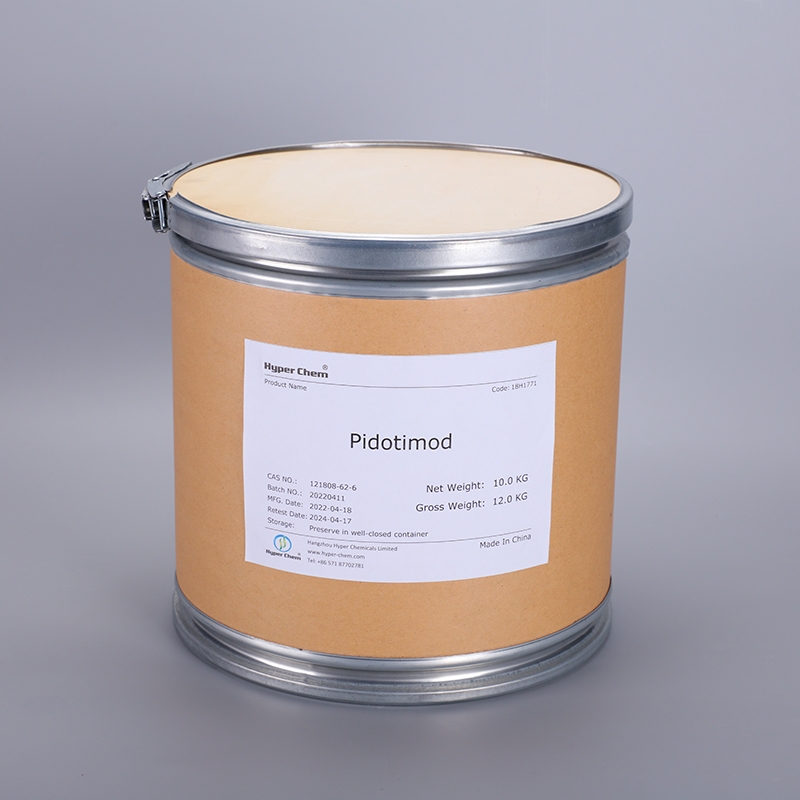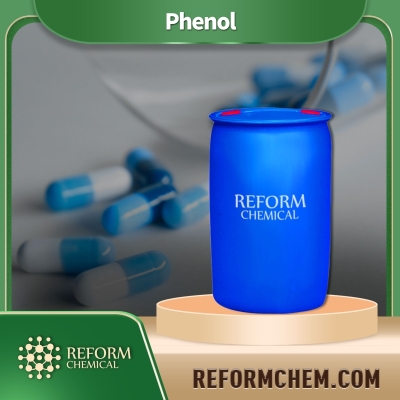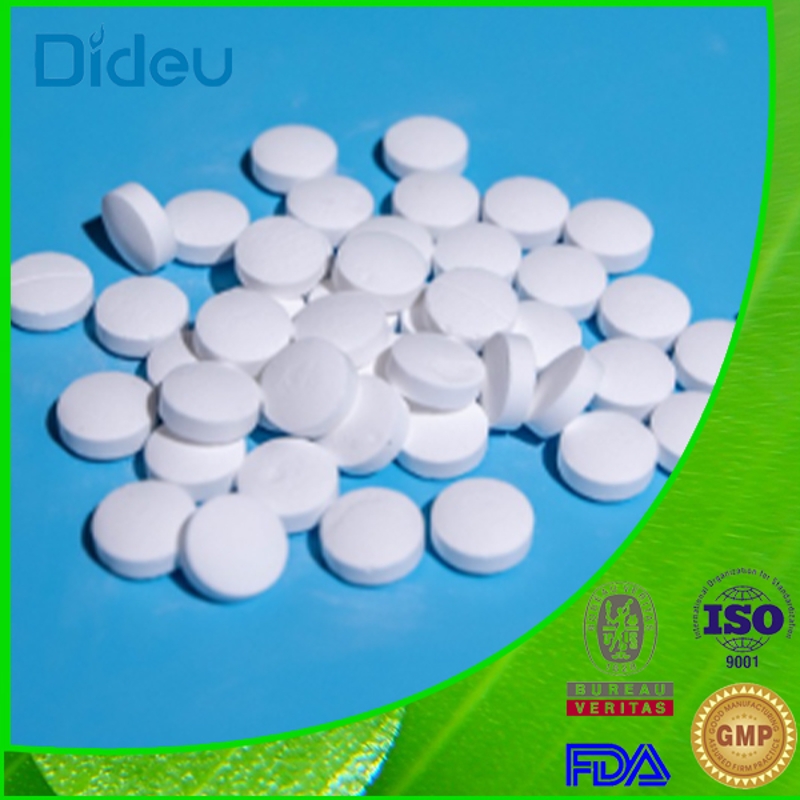-
Categories
-
Pharmaceutical Intermediates
-
Active Pharmaceutical Ingredients
-
Food Additives
- Industrial Coatings
- Agrochemicals
- Dyes and Pigments
- Surfactant
- Flavors and Fragrances
- Chemical Reagents
- Catalyst and Auxiliary
- Natural Products
- Inorganic Chemistry
-
Organic Chemistry
-
Biochemical Engineering
- Analytical Chemistry
-
Cosmetic Ingredient
- Water Treatment Chemical
-
Pharmaceutical Intermediates
Promotion
ECHEMI Mall
Wholesale
Weekly Price
Exhibition
News
-
Trade Service
Corona Virus Disease 2019 (COVID-19) The number of infections worldwide has risen
sharply since the outbreak began in December 2019.
As of 24:00 Beijing time on November 7, 2022, a total of 8,609,153 confirmed cases and 28,939 deaths have been reported nationwide (including Hong Kong, Macao and Taiwan).
How to better prevent and treat new crown pneumonia is a common topic of concern around the world, and this year's American Infectious Disease Week (IDWeeK) has also released a summary of high-risk groups of new crown pneumonia, new progress in neutralizing antibodies, etc.
, let's
take a look.
People at high risk of new coronary pneumonia
New progress in new crown neutralizing antibodies
sharply since the outbreak began in December 2019.
As of 24:00 Beijing time on November 7, 2022, a total of 8,609,153 confirmed cases and 28,939 deaths have been reported nationwide (including Hong Kong, Macao and Taiwan).
How to better prevent and treat new crown pneumonia is a common topic of concern around the world, and this year's American Infectious Disease Week (IDWeeK) has also released a summary of high-risk groups of new crown pneumonia, new progress in neutralizing antibodies, etc.
, let's
take a look.
People at high risk of new coronary pneumonia
➤Hematologic disease, elevated aspartate aminotransferase (AST), and lactate are important prognostic factors affecting in-hospital mortality in patients with severe COVID-19 at the initial stage of infection2
A cohort study conducted at Lithuanian University Medical Center to assess prognostic factors
affecting in-hospital mortality in patients with severe COVID-19.
The results showed that 291 participants were diagnosed with severe COVID-19, including 21 deaths (7.
2%)
.
Blood disorders, lung disease, and cancer were more common
in deceased patients than in recovered patients.
Multivariate regression showed blood disorders (OR 8.
68; 95% CI 1.
46-51.
40, p=0.
017), initial AST > 32.
9 U/l (OR 13.
57; 95% CI 1.
46 to 125.
94, p=0.
022), lactic acid > 1.
46 mmol/l (OR 4.
87; 95% CI 1.
03 to 22.
86, p=0.
045) were associated with
in-hospital mortality in patients with age-adjusted severe COVID-19.
The study concluded that hematologic disorders, AST, and lactate elevations are important prognostic factors
affecting in-hospital mortality in patients with severe COVID-19 at the initial stage of infection.
➤ Compared with other patients with malignant tumors co-infected with COVID-19, patients with hematological tumors hospitalized with COVID-19 infection have more severe disease and have a worse prognosis3
Patients with COVID-19 and underlying malignancies, particularly those receiving immunosuppressive therapy, are
at higher risk of severe COVID-19 disease.
A retrospective cohort study analyzed outcomes following COVID-19 infection in patients admitted to MD Anderson Cancer Center for different types of malignancy in the first 2 years of the pandemic
.
The results showed that a total of 1748 patients with cancer co-infection with COVID-19 were admitted to the hospital (3.
2% of the total hospitalizations during the same period) during the two-year period, of which 49% were patients with hematological oncology (HM).
Compared with patients with solid tumors (ST), the readmission rate (17.
3% vs 9.
1%, P <0.
0001), invasive mechanical ventilation rate (7.
8% vs 4.
4%, P=0.
0029), and inpatient mortality (7.
8% vs 4.
4%, P=0.
0029) were significantly
increased in the HM group 。 The overall mortality rate was 8.
8% (154 cases), and the mortality rate was higher in patients with HM, such as lymphoma, acute myeloid leukemia (AML), multiple myeloma (MM), and chronic myeloid leukemia (CML), respectively, 18.
1%, 14.
2%, 8.
4%, and 7.
1%, respectively, compared with 7.
1
% in ST patients.
The conclusion of the study suggests that HM patients admitted to hospital due to COVID-19 infection are more severely ill and have a worse prognosis, and preventive measures, timely diagnosis and early treatment
should be considered for this population.
➤ Solid organ transplant recipients break through infection related research4
Solid organ transplant (SOT) recipients are at higher risk during the coronavirus epidemic than the general population
.
A single-center prospective cohort study of 642 SOT recipients (including 277 kidneys, 191 livers, 144 hearts, and 37 lungs) who received three doses of mRNA COVID-19 vaccine
.
Among all patients, breakthrough infection (Bl) occurred in 111 (17.
8%), and the incidence of BI in liver, heart, kidney and lung transplant recipients was 19.
9%, 18.
1%, 15.
2%, and 10.
8%, respectively
.
A positive antibody response (AbR) was observed in 60% of all patients, with rates ranging from 8.
7% to 91.
3% in patients with and without BI, respectively
.
Multivariate analysis showed that liver (compared with other grafts) transplantation (OR 2.
98, 95% CI 1.
47-6.
03), use of mycophenolate mofetil (OR 1.
63, 0.
92-2.
88), and use of hormones (OR 1.
8, 1.
05-3.
33) were predictors of Bl, while AbR positivity (OR 0.
61, 0.
35-1.
04) and age (OR 0.
97, 0.
95-0.
99) were protective factors for Bl
。
➤ Patients treated with CAR-T are at higher risk of severe COVID-19 and need additional measures to prevent COVID-19 and reduce the severity of the disease5
A single-center retrospective study to obtain data
on vaccine immunogenicity in patients receiving chimeric antigen receptor T cell therapy (CAR-T therapy).
A total of 25 adult patients with non-Hodgkin lymphoma treated with CD19 CAR-T were included in the study
.
The primary endpoint of the study was the percentage of
patients who responded positive for S protein antibodies.
The results of the study showed that the number of patients with a positive antibody response was 12 (48%)
.
The median number of vaccinated doses was 3 doses
.
The median S protein antibody titer in positive patients was 111 U/mL (range 2.
44 to 12500).
Two patients (8%) were infected with COVID-19 and both were negative
for S protein antibodies.
Analysis of the studies showed that only 48% of patients treated with CAR-T developed a positive antibody response after receiving at least two doses of the COVID-19 vaccine, with a lower
median titer for responders.
These people are at higher risk of severe COVID-19 and may remain susceptible even after vaccination, so other approaches are needed to prevent COVID-19 and reduce disease severity
for patients receiving CAR-T.
New progress in new crown neutralizing antibodies
EVUSHELD is a combination of two monoclonal antibodies (tixagevimab and cilgavimab), which are derived from B cells of patients convalescent from SARS-CoV-2 infection and bind to different epitopes of SARS-CoV-2 protein in a non-competitive manner to block SARS-CoV-2 virus entry into cells, thereby achieving preventive and therapeutic effects 6
。 It is the world's first new crown neutralizing antibody
approved for both prevention and treatment indications.
The PROVENT study6 evaluated the efficacy
of Evusheld in people at high risk of COVID infection 。 The results showed that Evusheld reduced the risk of symptomatic COVID by 83% within 6 months compared to placebo; In addition, pharmacokinetic data showed that Evusheld concentrations remained high in serum for 6 months after administration, indicating that a single dose of Evusheld could provide immune protection
against the new coronavirus for at least 6 months.
Another TACKLE study7 evaluated the safety and efficacy
of Evusheld in adult patients with mild to moderate COVID.
Results showed that administration within 7 days of symptom onset significantly reduced the risk of progression to severe disease or death by 50.
5% compared with placebo; When administered within 5 days of symptom onset, the risk was reduced by 66.
9%.
In exploratory analyses, administration within 3 days of symptom onset reduced risk by 88.
0%
compared to placebo.
➤ Variant-related studies: EVUSHELD The combination of two mAbs creates a genetic barrier of high drug resistance, suggesting support for the use of combinations of mAbs that combine different epitopes for the treatment of COVID-19; EVUSHELD maintained neutralizing activity against SARS-CoV-2 VOCs and VOIs, and its conservatism (≥99%) was high in most amino acid residues at the binding site of the novel coronavirus spike protein
One study8 evaluated the SARS-CoV-2 variant that emerged in TACKLE study participants after 15 days of treatment with Evusheld or placebo and determined the in vitro sensitivity
of the identified variant to Evusheld and a single monoclonal antibody component 。 The study collected samples from the TACKLE primary analysis (data as of August 2021) (nasal swabs collected at baseline and on days 3, 6, and 15) and performed next-generation sequencing
of the spike gene in nasal swabs positive for SARS-CoV-2 reverse transcription polymerase chain reaction.
SARS-CoV-2 lineage
is assigned using the spike nucleotide sequence.
Amino acid substitution, insertions, and deletions
were analyzed at AF (percentage of sequence reads represented by mutations) ≥ 25% and 3%~25%.
Assess fold changes
in susceptibility by pseudoviral neutralization assays.
Conclusions: After treatment with Evusheld, SARS-CoV-2 variants with tixagevimab/cilgavimab binding site mutations had a lower incidence and frequency comparable
to that of the placebo group.
Mutations in allele fraction (AF) ≥25% of test treatments did not show reduced
sensitivity to Evusheld.
These data suggest that the combination of two mAbs creates a high genetic barrier of resistance, supporting the use of combinations of mAbs that combine different epitopes to treat COVID-19
.
Another study9 evaluated the in vitro efficacy of EVUSHELD and its components against SARS-CoV-2 VOCs/VOIs and evaluated the effect of EVUSHELD binding site substitution on sensitivity to neutralizing variants and whether variants identified in PROVENT study participants exhibited reduced
sensitivity 。 The study evaluated N = 8,679,290 sequences from COVIDCG4 (Global Influenza Shared Database: December 1, 2019 to May 12, 2022) to identify prevalent spiny mutants and substitutions
within the tixagevimab/cilgavimab binding site 。 THE GLOBALLY CIRCULATING VARIANT (WBY CLASSIFICATION AS OF MAY 3, 2022) AND ITS CHARACTERISTIC RBD SURROGATE AND 7 SARS-COV-2 SPIKE-BASED LINEAGES WERE PHENOTYPICALLY ASSESSED
FOR DATA CUTOFF FOR EVUSHELD-NEUTRALIZATION BETWEEN DAY 1 TO 6 OF DISEASE PRESENTATION IN 20/42 PARTICIPANTS FROM PROVENT 。 Spike surrogates were included in SARS-CoV-2 Wuhan-Hu-1/2019 +D614G spike pseudolentivirus and sensitivity to EVUSHELD and its component mAbs was assessed by a microneutralization assay
.
The results showed that EVUSHELD maintained neutralizing activity against SARS-CoV-2 VOCs and VOIs and slightly decreased
activity against Omicron (BA.
1).
The conservatism of most amino acid residues at the binding sites of the new coronavirus spike protein to tixagevimab and cilgavimab is ≥99%.
➤ Animal studies: EVUSHELD significantly reduced lung viral load and had a protective effect against SARS-CoV-2-induced lung inflammation and alveolar damage
An animal study 10 The in vivo
efficacy of AZD7442-TM (i.
e.
, EVUSHELD including TM modification but not YTE modification, YTE modification [M252Y/S254T/T256E] prolongs antibody half-life, and TM modification [L234F/L235E/P331S], which reduces binding of FC receptor and complement component C1q) for the prevention and treatment of SARS-CoV-2 was evaluated using the Syrian hamster model 。 Intranasal inhalation infection with the SARS-CoV-2 strain USA-WA1/2020 using Syrian hamsters on day 0 was studied for modelling in both the prophylactic and therapeutic groups
.
AZD7442-TM is administered
by intraperitoneal injection.
Serum and tissue are collected on days 3 and 7 post-infection; Record your weight
daily.
Tissue sections were stained with SARS-CoV-2 nucleocapsid protein-specific rabbit monoclonal antibodies and imaged and scored by veterinary pathologists in a blinded manner to determine the mean lung pathology score
on a scale of 0 (normal) to 25 (most severe).
The results showed that AZD7442-TM (without YTE modification) for prophylaxis or treatment significantly reduced lung viral load in a Syrian hamster model infected with SARS-CoV-2, and no antibody-dependent enhancement effect
of infection or disease was found.
And, lung pathology scores suggest that AZD7442-TM has a protective effect
against SARS-CoV-2-induced lung inflammation and alveolar damage.
➤ Clinical trial: EVUSHELD slowed symptom progression in patients with mild and moderate COVID-19; prevented all-cause death or hospitalization due to complications or sequelae of the disease in patients with mild to moderate COVID-19; When applied in immunocompromised patients, the rate of new crown infection, hospitalization and mortality is very low
A post-hoc analysis of the TACKLE study11 reported the benefit
of EVUSHELD in reducing self-reported COVID-19 symptom severity, symptom progression, and time to symptom relief to day 29 。 The proportion of participants who developed ≥1 COVID-19-related symptoms at day 29 progressed to worse status than recorded in the symptom diary prior to
the start of treatment was compared between the EVUSHELD and placebo groups using a protocol-defined scoring system on a daily basis (0: asymptomatic, 1: mild, 2: moderate, 3: severe, 4: emergency room or hospital visits).
Only people with a baseline severity score of <4 were included in the analysis
.
COVID-19 symptom severity assessment is based on a symptom severity score on day 29, including the day
of EVUSHELD or placebo.
Conclusions suggest that a single 600 mg intramuscular dose of EVUSHELD in patients with mild to moderate COVID-19 is associated with a slowing progression of COVID-19 symptom severity and may accelerate symptom improvement
by day 29.
This suggests that treatment with EVUSHELD may help outpatient patients with mild to moderate COVID-19 recover more quickly and return to normal activities with less likely disease
progression.
One study12 reported key secondary efficacy outcomes
using long-term safety data over 6 months from the TACKLE study 。 The TACKLE study is a Phase 3 study in adults with mild to moderate COVID-19, where subjects are randomly assigned in a 1:1 ratio and given a single dose of 600 mg EVUSHELD (300 mg per antibody) within 7 days of symptom onset; n=452) or placebo (n=451).
Key secondary endpoints were analysed using the Cochran-Mantel-Haenszel test, which was stratified
by time to symptom onset (≤ 5 versus 5 days >) and risk of progression to severe COVID-19 (high vs low).
THE RESULTS SHOWED 20 (6.
8%) AND 40 (13.
7%) ENDPOINT EVENTS IN THE EVUSHELD AND PLACEBO GROUPS, RESPECTIVELY.
RRR was 50.
7% (95% CI 17.
5–70.
5; P = 0.
006)
compared with placebo.
Suggests that a single intramuscular injection of 600 mg of EVUSHELD within 7 days of onset of symptoms in outpatients with mild to moderate COVID-19 prevents all-cause death or hospitalization
for complications or sequelae of COVID-19 within 6 months.
EVUSHELD tolerated well at 6 months with no new safety concerns
compared to initial analysis.
These data further support the use of EVUSHELD in outpatient care to reduce the COVID-19-related inpatient and hospital burden
.
One study1-3 evaluated EVUSHELD use in patients in Minnesota, including the incidence of possible breakthrough infections and vaccination of those receiving EVUSHELD
.
The Minnesota Department of Health (MDH) established a voluntary patient registry through a secure REDCap form in December 2021, and the study investigation ended
on June 30.
Matched with state COVID 19 case data on July 27 to check for the occurrence of SARS-CoV-2 infection (defined by a positive PCR or antigen test) and hospitalizations or deaths
following EVUSHELD use 。 The study included a total of 296 patients who met FDA criteria for EVUSHELD, most of whom were eligible for treatment due to immunosuppressants or underlying hematologic malignancies, resulting in a total of 17 patients with breakthrough infections (5.
7%), hospitalization rates (1.
4%), and Covid-19 related deaths (0%)
。 Conclusions: In samples of immunocompromised patients who received EVUSHELD injection, the infection rate (SARS-CoV-2 test positivity rate), hospitalization rate, and mortality rate were low, supporting its use
in this population.
In summary, the IDWeek Conference 2022 brings us the latest research progress in high-risk groups of new crown pneumonia and new crown neutralizing antibodies, which will bring more thinking and insights to clinical experts, and provide more scientific ideas and directions
for better protection of high-risk groups and treatment of new crown pneumonia.
References
IDWeek official website: https://idweek.
org/
1.
style="font-size: 12px;color: rgb(127, 127, 127);font-family: Helvetica, Arial, sans-serif;" _msthash="272756" _msttexthash="11178596">2.
288 - Prognostic Factors for In-hospital Mortality of Patients with Severe COVID-19 Hospitalized in the University Medical Center, Lithuania.
3.
1086 - COVID-19 in a comprehensive Cancer Center: 2020-2022.
4.
1089 - Evaluation of breakthrough infections in solid organ transplant recipients: the prospective CONTRAST cohort.
5.
1939 - COVID-19 vaccine immunogenicity among CD19 receptor T-cell (CAR-T) therapy.
6.
Levin MJ,et al.
N Engl J Med.
2022 Jun 9; 386(23):2188-2200.
7.
Montgomery H, et al.
Lancet Respir Med.
2022 Jun 7; S2213-2600(22)00180-1
8.
1160 - Treatment-Emergent Viral Variants in the Phase 3 TACKLE Trial Investigating Efficacy and Safety of AZD7442 (Tixagevimab/Cilgavimab) for the Treatment of Mild to Moderate COVID-19 in Adults1066 - Precision phenotyping of “long COVID” through machine learning.
9.
1110 - AZD7442 (Tixagevimab/Cilgavimab) Demonstrates Potent In Vitro Activity Against SARS-CoV-2 Spike Variants Identified in Circulation and in Prophylaxis Clinical Studies
10.
1143 - Prophylactic and Therapeutic Activity of AZD7442 (Tixagevimab/Cilgavimab) in SARS-CoV-2 Hamster Challenge Models
11.
1918 - Impact of the SARS-CoV-2–Neutralizing Antibody Combination AZD7442 (Tixagevimab/Cilgavimab) on the Severity and Progression of COVID-19 Symptoms in the Phase 3 TACKLE Trial
12.
1924 - Outpatient Treatment With the SARS-CoV-2–Neutralizing Antibody Combination AZD7442 (Tixagevimab/Cilgavimab) for Preventing COVID-19 Hospitalizations in the Phase 3 TACKLE Trial
13.
1925 - Prevalence of SARS-CoV-2 Infection in Immunocompromised Patients Following Receipt of Tixagevimab/Cilgavimab







